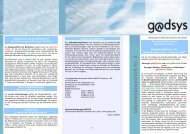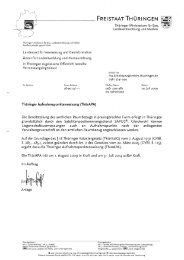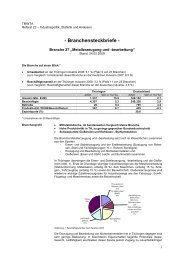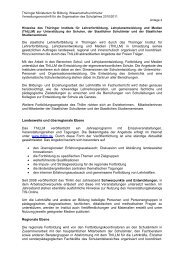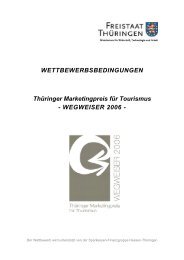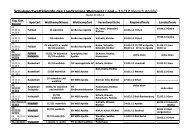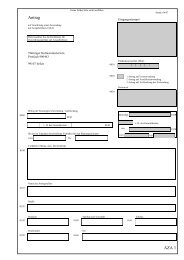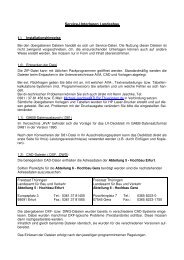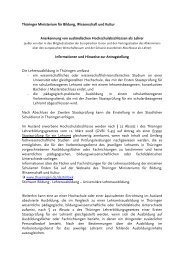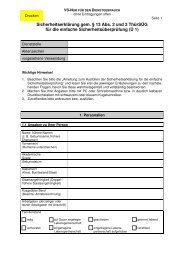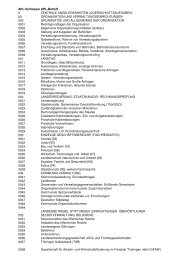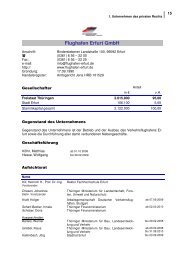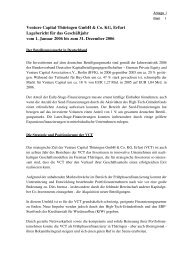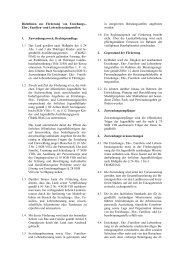ESDC COURSE ON INTERNATIONAL LAW FOR MILITARY LEGAL ...
ESDC COURSE ON INTERNATIONAL LAW FOR MILITARY LEGAL ...
ESDC COURSE ON INTERNATIONAL LAW FOR MILITARY LEGAL ...
You also want an ePaper? Increase the reach of your titles
YUMPU automatically turns print PDFs into web optimized ePapers that Google loves.
1. Introduction<br />
2. Aims<br />
<strong>ESDC</strong> <strong>COURSE</strong> <strong>ON</strong><br />
INTERNATI<strong>ON</strong>AL <strong>LAW</strong><br />
<strong>FOR</strong> <strong>MILITARY</strong> <strong>LEGAL</strong> ADVISERS<br />
2011 - 2012<br />
The Austrian Federal Ministry of Defence (MoD) is organizing the “6 th Vienna Course<br />
on International Law for Military Legal Advisers” in 2011 - 2012. This course is<br />
provided under the auspices of the European Security and Defence College (<strong>ESDC</strong>)<br />
with the aim to contribute to the establishment of a common European Security<br />
Culture.<br />
• To convey core knowledge about the legal problems involved in international crisismanagement<br />
operations/peace support operations (CMO’s/PSO’s) by military and<br />
security forces and the relevance of international law to such operations<br />
• To ensure thorough and detailed knowledge of the core principles and rules of<br />
international humanitarian law, operational law and human rights law applicable in<br />
situations of armed conflict and internal violence, as well as in CMO’s/PSO’s<br />
• To practice the application of the law in the planning and execution of CMO’s/PSO’s<br />
• To facilitate co-operation between military commanders and legal advisers<br />
3. Objectives<br />
• To improve the participants’ substantive legal knowledge in the relevant fields of<br />
international law<br />
• To advance the participants’ practical skills in, e.g., presentation and drafting<br />
exercises<br />
• To develop the participants’ ability to adapt and react to a changing scenario that<br />
evolves “in real time”<br />
• To test the participants’ ability to apply legal knowledge to a factual (fictitious)<br />
scenario<br />
4. Structure and methodology<br />
The Course consists of three parts each of one week’s duration, to take place at<br />
intervals of several weeks. The three parts of the Course are as follows:<br />
• Part I: International Operational Law<br />
• Part II: International Humanitarian Law<br />
• Part III: Practical Simulation
Part I will cover the following topics, inter alia:<br />
• Legal basis and legitimacy of CMO’s/PSO’s in public international law<br />
• Actors in CMO’s/PSO’s, their legal status and role (including the EU and other<br />
international organisations as NATO etc.)<br />
• Status of Forces issues (including applicability of national/local law, claims and<br />
jurisdictional issues, etc.)<br />
• Use of force in CMO’s/PSO’s (including self-defence, mission accomplishment and<br />
ROE)<br />
• Relevant aspects of human rights law (sources, scope of application, substantive<br />
rights, derogations, etc.) and its applicability (with special reference to the European<br />
Convention on Human Rights) to CMO’s/PSO’s<br />
Part II will cover the following topics, inter alia:<br />
• Review of the law of armed conflict (sources, development, scope of application, etc.)<br />
• Basic principles and rules of IHL (methods and means of warfare, protection of<br />
persons and objects, detention, etc.)<br />
• Implementation and dissemination of IHL, including legal basis for and role of the<br />
ICRC<br />
• International criminal law (war crimes, command responsibility, international and<br />
national criminal courts and tribunals)<br />
The methodology of Parts I and II will consist of lectures supplemented by class work.<br />
The participants will be divided into working groups and each group will be required<br />
to give a presentation at the end of each day. The presentations will be commented on<br />
and discussed in daily plenary debriefings. Preparatory reading material will be sent to<br />
the selected participants.<br />
Part III will require participants to act as legal advisers in an evolving simulation. The<br />
(fictitious) scenario is envisaged as taking place in a country that has been troubled by<br />
internal violence for some considerable length of time. Although a peace agreement<br />
has been reached and a multinational force has been sent to the territory by the<br />
European Union, acting under a mandate from the United Nations Security Council,<br />
the situation escalates.<br />
5. Criteria for participation<br />
The Course is designed primarily for military lawyers and/or civilian legal advisers in<br />
the Armed Forces or the Ministry of Defence of Austria and other European States,<br />
dealing with legal issues related to international law and its application to operational<br />
issues, particularly those who are likely to be assigned to CMO’s/PSO’s as legal<br />
advisers. Participants are expected to have a good knowledge of public international<br />
law, in particular international humanitarian law. The number of participants will be<br />
limited to a maximum of thirty. Selection of Austrian participants is done in<br />
accordance with the criteria established by the Austrian MoD. To ensure a proper<br />
selection process of non-Austrian course participants in line with the course<br />
objectives, the selection will be done by the course organisers on the basis of the<br />
nominations. Past deployment(s) is a desirable requisite. Priority will be given to
military legal advisers who in the near future are likely to be assigned to<br />
CMO’s/PSO’s.<br />
The Course language will be English. Participants will be required to have a good<br />
understanding of the English language and to have the ability to express themselves<br />
clearly both verbally and in writing.<br />
Participants will be required to attend all three parts of the Course in order to be<br />
eligible for a certificate of attendance.<br />
6. Course materials<br />
English-language material for the Course, including all relevant treaty instruments in<br />
hard copy and/or CD-ROM, will be provided to all participants. A working library<br />
with selected reading materials on relevant aspects of International Law will also be<br />
available for the participants’ use.<br />
7. Dates and location<br />
Part I 21 to 25 November 2011;<br />
Part II 23 to 27 January 2012; and<br />
Part III 05 to 09 March 2012.<br />
All three Parts of the Course will take place in Austrian MoD facilities in Vienna.<br />
8. Costs, accommodation and subsistence<br />
The participation fee for the course is € 100,00 per week, thus € 300,00 for the entire<br />
course, expected to be paid before the beginning of the course, pending confirmation<br />
of participation.<br />
Participants as well as guest lecturers on the Course will be accommodated at the<br />
Austrian MoD facility Wohnheim Breitensee, Breitenseer Straße 102-104, 1140 Wien<br />
(at own expenses). The costs for a single room are approximately 21,00 EUR per<br />
night. Breakfast and lunch will also be available at own expenses. The costs for<br />
breakfast and lunch are approximately 6,00 EUR per day, excluding drinks. There is<br />
also a cafeteria available. Dinner is at own arrangement.<br />
9. Dress code<br />
Military participants are expected to wear uniform during working hours.
6 th VIENNA <strong>COURSE</strong> <strong>ON</strong> INTERNATI<strong>ON</strong>AL <strong>LAW</strong><br />
<strong>FOR</strong> <strong>MILITARY</strong> <strong>LEGAL</strong> ADVISERS, 2011 - 2012<br />
PART I – INTERNATI<strong>ON</strong>AL OPERATI<strong>ON</strong>AL <strong>LAW</strong><br />
21– 25 November 2011<br />
Programme<br />
Monday 21 November – The legal basis of international military crisis management<br />
operations (CMO’s)<br />
0830-0845 Welcome and Introduction to the Course<br />
Dr. Thomas Desch (Federal Ministry of Defence and Sports, Austria)<br />
0845-0915 Introduction to the European Security and Defence College (<strong>ESDC</strong>)<br />
Mr Ernst Felberbauer (Federal Ministry of Defence and Sports, Austria)<br />
0915-0945 Lecture 1: International Operational Law: an introduction<br />
Dr. Thomas Desch<br />
0945-1000 Break<br />
1000-1100 Lecture 2: Legal basis for military operations on foreign territory; general<br />
aspects under Public International Law; Distinction between jus ad bellum<br />
and jus in bello<br />
Mr David Turns (Defence Academy of the United Kingdom)<br />
1100-1115 Break<br />
1115-1215 Lecture 3: Legal basis for military operations on foreign territory; general<br />
aspects under Public International Law (cont.)<br />
Mr David Turns<br />
1215-1315 Lunch break<br />
1315-1330 Briefing on legal working method and presentation format; Distribution of<br />
tasks for class work<br />
Mr David Turns (Defence Academy of the United Kingdom)<br />
1330-1545 Class work<br />
1545-1630 Plenary presentations of conclusions from class work<br />
1700 Departure by bus<br />
Cultural event (sightseeing)<br />
1830 Welcome drink<br />
2100 Transfer by bus to Wohnheim Breitensee<br />
Tuesday 22 November – The actors in international military CMO’s<br />
0830-0930 Lecture 1: States as actors in international military CMO’s<br />
Dr. Thomas Desch<br />
0930-0945 Break<br />
0945-1045 Lecture 2: International organisations, in particular the UN, as actors in<br />
international military CMO’s<br />
draft version as of 22 June 2011
Mrs Ursula Hann (Federal Ministry of Defence and Sports, Austria)<br />
1045-1115 Break<br />
1115-1215 Lecture 3: International organisations, in particular the UN, as actors in<br />
international military CMO’s<br />
Mrs Ursula Hann<br />
1215-1315 Lunch break<br />
1315-1400 Lecture 4: The role of humanitarian organisations in crisis situations<br />
Mrs Réka Varga (Pázmány Catholic University Budapest) (tbc)<br />
1400-1415 Distribution of tasks for class work<br />
1415-1545 Class work<br />
1545-1630 Plenary presentations of conclusions from class work<br />
Wednesday 23 November – Use of force in international military CMO’s<br />
0830-0930 Lecture 1: The EU as actor in international military CMO’s; the Common<br />
Security and Defence Policy under the Lisbon Treaty<br />
Dr Frederik Naert (Legal Adviser, EU Council Legal Service) (tbc)<br />
0930-0945 Break<br />
0945-1045 Lecture 2: Operation Plan (OPLAN) and Rules of Engagement (ROE); use of<br />
force issues at EU policy level<br />
Dr Frederik Naert<br />
1045-1115 Break<br />
1115-1215 Lecture 3: Operation Plan (OPLAN) and Rules of Engagement (ROE); use of<br />
force issues at force level<br />
Mrs Linda Murnane (International Criminal Tribunal for the Former<br />
Yugoslavia) (tbc)<br />
1215-1315 Lunch break<br />
1315-1400 Lecture 4: Operation Plan (OPLAN) and Rules of Engagement (ROE); use of<br />
force issues at force level (cont.)<br />
Mrs Linda Murnane<br />
1400-1415 Distribution of tasks for class work<br />
1415-1545 Class work<br />
1545-1630 Plenary presentations of conclusions from class work<br />
Thursday 24 November – Status of Forces Agreement (SOFA) issues<br />
0830-0930 Lecture 1: EU SOFA issues<br />
Dr Frederik Naert<br />
0930-0945 Break<br />
0945-1045 Lecture 2: NATO as actor in international military CMO’s; NATO SOFA<br />
issues<br />
Mr Baldwin De Vidts (former Legal Adviser, NATO HQ) (tbc)<br />
1045-1115 Break<br />
1115-1215 Lecture 3: Claims and other financial issues<br />
Mr Baldwin De Vidts<br />
1215-1315 Lunch break<br />
1315-1400 Lecture 4: Jurisdiction issues<br />
Mr Baldwin De Vidts<br />
1400-1415 Distribution of tasks for class work
1415-1545 Class work<br />
1545-1630 Plenary presentations of conclusions from class work<br />
1715 Departure by bus<br />
1800 start Course Dinner<br />
2100 Transfer by bus to Wohnheim Breitensee<br />
Friday 25 November – Human Rights law in international military operations<br />
0830-0930 Lecture 1: International & European Human Rights Law; a general overview<br />
Prof. Peter Rowe (University of Lancaster, UK) (tbc)<br />
0930-0945 Break<br />
0945-1045 Lecture 2: International & European Human Rights Law; extraterritorial<br />
application; ECHR practice<br />
Prof. Peter Rowe (University of Lancaster, UK)<br />
1045-1115 Break<br />
1115-1215 Lecture 3: International & European Human Rights Law; application in<br />
international CMOs; specific operational impact<br />
The Rev. Col. Nicholas Mercer (former Legal Adviser, British Army Legal<br />
Services) (tbc)<br />
1215-1315 Lunch break<br />
1315-1330 Distribution of tasks for class work<br />
1330-1500 Class work<br />
1500-1545 Plenary presentations of conclusions from class work<br />
By 1600 Close<br />
---------------------
6 th VIENNA <strong>COURSE</strong> <strong>ON</strong> INTERNATI<strong>ON</strong>AL <strong>LAW</strong><br />
<strong>FOR</strong> <strong>MILITARY</strong> <strong>LEGAL</strong> ADVISERS, 2011 - 2012<br />
PART II – INTERNATI<strong>ON</strong>AL HUMANITARIAN <strong>LAW</strong><br />
23 - 27 January 2012<br />
Programme<br />
Monday 23 January – Legal framework of International Humanitarian Law (IHL)<br />
0830-0930 Lecture 1: IHL as part of Public International Law; an introduction<br />
Mr David Turns (Defence Academy of the United Kingdom)<br />
0930-0945 Break<br />
0945-1045 Lecture 2: IHL as part of Public International Law; an introduction (cont.)<br />
Mr David Turns (Defence Academy of the United Kingdom)<br />
1045-1115 Break<br />
1115-1215 Lecture 3: Scope of application of IHL<br />
Dr. Thomas Desch (Federal Ministry of Defence and Sports, Austria)<br />
1215-1315 Lunch<br />
1315-1345 Lecture 4: Scope of application of IHL in Afghanistan: a case study<br />
ICRC speaker (tba)<br />
1345-1400 Distribution of tasks for class work<br />
1400-1545 Class work<br />
1545-1630 Plenary presentations of conclusions from class work<br />
1700 start Film screening<br />
Tuesday 24 January – Protection of persons and objects in IHL<br />
0830-0930 Lecture 1: Personal status in IHL (combatants and non-combatants)<br />
Mr David Turns<br />
0930-0945 Break<br />
0945-1045 Lecture 2: Protection of persons and objects<br />
Mrs Réka Varga (Pázmány Catholic University, Budapest) (tbc)<br />
1045-1115 Break<br />
1115-1215 Lecture 3: Protection of persons and objects (cont.)<br />
Mrs Réka Varga<br />
1215-1315 Lunch<br />
1315-1415 Lecture 4: The role of the International Committee of the Red Cross<br />
ICRC speaker (tba)<br />
1415-1430 Distribution of tasks for class work<br />
1430-1545 Class work<br />
1545-1630 Plenary presentations of conclusions from class work<br />
draft version as of 22 June 2011
Wednesday 25 January – Methods and means of warfare<br />
0830-0930 Lecture 1: The principle of distinction and direct participation in hostilities<br />
Ms Camilla Guldahl (Defence Command and Staff College, Norway) (tbc)<br />
0930-0945 Break<br />
0945-1045 Lecture 2: Proportionality, targeting and use of weapons<br />
Ms Camilla Guldahl<br />
1045-1115 Break<br />
1115-1215 Lecture 3: Proportionality, targeting and use of weapons (cont.)<br />
Ms Camilla Guldahl<br />
1215-1315 Lunch<br />
1315-1330 Distribution of tasks for class work<br />
1330-1530 Class work<br />
1530-1630 Plenary presentations of conclusions from class work<br />
Thursday 26 January – Implementation and Enforcement of IHL<br />
0830-0930 Lecture 1: Implementation of IHL<br />
Mrs Réka Varga<br />
0930-0945 Break<br />
0945-1045 Lecture 2: Individual criminal responsibility for violations of IHL<br />
Mr David Turns<br />
1045-1115 Break<br />
1115-1215 Lecture 3: Command responsibility<br />
Mr Nobuo Hayashi (Peace Research Institute, Oslo) (tbc)<br />
1215-1315 Lunch<br />
1315-1415 Lecture 4: Command responsibility<br />
Mr Nobuo Hayashi<br />
1415-1430 Distribution of tasks for class work<br />
1430-1545 Class work<br />
1545-1630 Plenary presentations of conclusions from class work<br />
1715 Departure by bus<br />
1800 Course Dinner (typical Viennese “Heurigen”)<br />
2100 Transfer by bus to Wohnheim Breitensee<br />
Friday 27 January – International and National Criminal Courts and Tribunals<br />
0830-0930 Lecture 1: International criminal courts and tribunals – an overview<br />
Dr Christine Byron (Cardiff University, UK)<br />
0930-0945 Break<br />
0945-1045 Lecture 2: The International Criminal Court (ICC): Jurisdiction and pending<br />
cases<br />
Dr Christine Byron (Cardiff University, UK)<br />
1045-1115 Break<br />
1115-1215 Lecture 3: Individual criminal responsibility and national jurisdiction: the<br />
Kunduz incident<br />
German MoD speaker [to be allocated]<br />
1215-1315 Lunch<br />
1315-1330 Distribution of tasks for class work
1330-1500 Class work<br />
1500-1545 Plenary presentations of conclusions from class work<br />
By 1600 Close<br />
---------------------
Monday, 05 March 2012<br />
6 th VIENNA <strong>COURSE</strong> <strong>ON</strong> INTERNATI<strong>ON</strong>AL <strong>LAW</strong><br />
<strong>FOR</strong> <strong>MILITARY</strong> <strong>LEGAL</strong> ADVISERS, 2011 - 2012<br />
PART III – EXTENDED PRACTICAL EXERCISE<br />
05 - 09 March 2012<br />
Programme<br />
0830-1015 Plenary:<br />
Introduction to Part III<br />
Dr. Thomas Desch (Federal Ministry of Defence and Sports, Austria)<br />
Legal Advisers in multinational HQs<br />
Col Dr. Michael Pesendorfer (Legal Adviser 7 th Infantry Brigade, Austrian<br />
Armed Forces) (tbc)<br />
Background Briefing and Instructions to Participants for Task 1<br />
Mr David Turns (Defence Academy of the United Kingdom)<br />
1015-1030 Break<br />
1030-1215 Working Groups (all): Reading of Exercise documents; Preparation for Task 1<br />
1215-1220 Group Photo<br />
1220-1320 Lunch break<br />
1320-1415 Working Groups (all): Preparation for Task 1 (cont.)<br />
1415-1430 Break<br />
1430-1500 Working Group 1: Task 1 (Jury 1)<br />
Working Group 2: Task 1 (Jury 2)<br />
Working Group 3: Task 1 (Jury 3)<br />
1500-1530 Working Group 4: Task 1 (Jury 1)<br />
Working Group 5: Task 1 (Jury 2)<br />
Working Group 6: Task 1 (Jury 3)<br />
1530-1545 Break<br />
1545-1630 Plenary: Debriefing on Task 1<br />
1700 Departure by bus to Museum of Military History<br />
1730 start Guided tour at the museum<br />
1830 Reception<br />
Tuesday, 06 March 2012<br />
0830-0845 Plenary: Background Briefing and Instructions to Participants for Task 2<br />
0845-1015 Working Groups (all): Preparation for Task 2<br />
1015-1030 Break<br />
1030-1050 Working Group 4: Task 2 (Jury 3)<br />
Working Group 5: Task 2 (Jury 1)<br />
Working Group 6: Task 2 (Jury 2)<br />
1050-1110 Working Group 1: Task 2 (Jury 3)<br />
draft version as of 22 June 2011
Working Group 2: Task 2 (Jury 1)<br />
Working Group 3: Task 2 (Jury 2)<br />
1110-1130 Break<br />
1130-1215 Plenary: Debriefing on Task 2<br />
1215-1315 Lunch break<br />
1315-1330 Plenary: Background Briefing and Instructions to Participants for Task 3<br />
1330-1450 Working Groups (all): Preparation for Task 3<br />
1450-1510 Working Group 1: Task 3 (Jury 2)<br />
Working Group 2: Task 3 (Jury 3)<br />
Working Group 3: Task 3 (Jury 1)<br />
1510-1530 Working Group 4: Task 3 (Jury 2)<br />
Working Group 5: Task 3 (Jury 3)<br />
Working Group 6: Task 3 (Jury 1)<br />
1530-1545 Break<br />
1545-1630 Plenary: Debriefing on Task 3<br />
Wednesday, 07 March 2012<br />
0830-0845 Plenary: Background Briefing and Instructions to Participants for Task 4<br />
0845-1015 Working Groups (all): Preparation for Task 4<br />
1015-1030 Break<br />
1030-1050 Working Group 4: Task 4 (Jury 1)<br />
Working Group 5: Task 4 (Jury 2)<br />
Working Group 6: Task 4 (Jury 3)<br />
1050-1110 Working Group 1: Task 4 (Jury 1)<br />
Working Group 2: Task 4 (Jury 2)<br />
Working Group 3: Task 4 (Jury 3)<br />
1110-1130 Break<br />
1130-1215 Plenary: Debriefing on Task 4<br />
1215-1315 Lunch break<br />
1315-1330 Plenary: Background Briefing and Instructions to Participants for Task 5<br />
1330-1450 Working Groups (all): Preparation for Task 5<br />
1450-1510 Working Group 1: Task 5 (Jury 3)<br />
Working Group 2: Task 5 (Jury 1)<br />
Working Group 3: Task 5 (Jury 2)<br />
1510-1530 Working Group 4: Task 5 (Jury 3)<br />
Working Group 5: Task 5 (Jury 1)<br />
Working Group 6: Task 5 (Jury 2)<br />
1530-1545 Break<br />
1545-1630 Plenary: Debriefing on Task 5<br />
Thursday, 08 March 2012<br />
0830-0845 Plenary: Background Briefing and Instructions to Participants for Task 6<br />
0845-1015 Working Groups (all): Preparation for Task 6<br />
1015-1030 Break<br />
1030-1050 Working Group 4: Task 6 (Jury 2)<br />
Working Group 5: Task 6 (Jury 3)<br />
Working Group 6: Task 6 (Jury 1)<br />
1050-1110 Working Group 1: Task 6 (Jury 2)
Working Group 2: Task 6 (Jury 3)<br />
Working Group 3: Task 6 (Jury 1)<br />
1110-1130 Break<br />
1130-1215 Plenary: Debriefing on Task 6<br />
1215-1315 Lunch break<br />
1315-1330 Plenary: Background Briefing and Instructions to Participants for Task 7<br />
1330-1450 Working Groups (all): Preparation for Task 7<br />
1450-1510 Working Group 1: Task 7 (Jury 1)<br />
Working Group 2: Task 7 (Jury 2)<br />
Working Group 3: Task 7 (Jury 3)<br />
1510-1530 Working Group 4: Task 7 (Jury 1)<br />
Working Group 5: Task 7 (Jury 2)<br />
Working Group 6: Task 7 (Jury 3)<br />
1530-1545 Break<br />
1545-1630 Plenary: Debriefing on Task 7<br />
Friday, 09 March 2012<br />
0830-0845 Plenary: Background Briefing and Instructions to Participants for Task 8<br />
0845-1015 Working Groups (all): Preparation for Task 8<br />
1015-1030 Break<br />
1030-1050 Working Group 4: Task 8 (Jury 3)<br />
Working Group 5: Task 8 (Jury 1)<br />
Working Group 6: Task 8 (Jury 2)<br />
1050-1110 Working Group 1: Task 8 (Jury 3)<br />
Working Group 2: Task 8 (Jury 1)<br />
Working Group 3: Task 8 (Jury 2)<br />
1110-1130 Break<br />
1130-1215 Plenary: Debriefing on Task 8<br />
1215-1300 Lunch break<br />
1300-1400 Plenary: Final ceremony<br />
---------------------
6 th Vienna Course<br />
on<br />
“International Law for Military Legal Advisers” 2011 - 2012<br />
Part I: from 21 to 25 November 2011<br />
Part II: from 23 to 27 January 2012<br />
Part III: from 05 to 09 March 2012<br />
_____________________________________________________________________<br />
APPLICATI<strong>ON</strong> to be sent NO LATER THAN 15 August 2011<br />
to the Austrian MOD via email: int.law@bmlvs.gv.at<br />
Last Name: ……………...……...…………... First Name: ……………………………<br />
Rank: .………………………………………. Nationality: ……………………………<br />
Sex: female male<br />
Function: …………………………………………………………………………………<br />
Past deployment(s): ………………………………………………………………………<br />
Perspective of future deployment: ………………………………………………………..<br />
Mailing address: …………………………………………………....……...……………<br />
.....................……………………………………………...................................………...<br />
Phone: …………………………………… Fax: ……………………………………...<br />
E-Mail: ………………………….........................................................……………….…<br />
Passport-No.: …………………………….. Place/Issue: ………………………...……<br />
Date/Issue: ………………………...……<br />
Means of Travel: Plane Train Car<br />
Estimated arrival in Vienna: Date: ……………….. Time: ……………….<br />
Flight/Train-No.: ………..…....<br />
Estimated departure from Vienna: Date: ………………… Time: ……………….<br />
Flight/Train-No.: ………..…....<br />
Signature: ……………………………… Date: ………………………..



